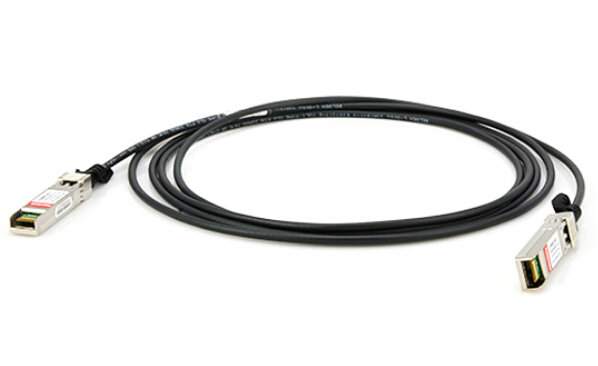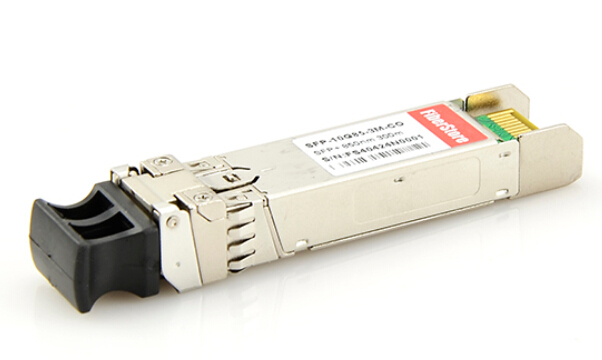Muse on 10G SFP modules
As 10Gb SFP+ cables and transceivers have become more common in the current data centers, the issue of vendor lock or encryption might become a problem for data center technicians. This paper discusses the working principle which is used to implement the encryption, why it's employed and the way to overcome it.
2-wire Serial Interface
SFP+ cables and transceivers use a 2-wire serial interface (called I2C) so that the network equipment to poll a specific port and obtain specifics about the cable or transceiver that's connected to that port. This interface can also be known as the Digital Diagnostic Management Interface, Digital Diagnostic Monitoring Interface or DDMI.
The DDMI provides specifics about the cable or transceiver assembly including vendor, serial number, part number, and date of manufacture which is stored in a memory chip or microprocessor inside the cable assembly.
EEPROMs Information
SFP+ passive cables contain EEPROMs inside the connector back shell which have I2C ports. These cables can also be known as SFP+ DAC or SFP+ direct attached Twinax copper cables. An EEPROM is an "Electrically Erasable Programmable Read-Only Memory" chip which is programmed within the factory with precise information about the cable assembly.

SFP+ active copper cables and fiber optic transceivers contain microprocessors inside the connector back shell. The microprocessor has memory which is available to the network through the 2-wire I2C interface. For active cables and transceivers, the interface allows real-time access to device operating parameters and includes alarm and warning signs, which alert the device when particular operating parameters are away from the factory settings.
Ordinarily, these EEPROMs and microprocessors abide by the SFF or Small Form Factor standards, which define the I2C interface protocol and allocate certain information to a particular memory location.
Vendor Lock and Encryption
Some vendors incorporate encryption or "vendor lock" inside their equipment that will issue an alert message if a non-vendor approved cable assembly is plugged into a port. In theory, this makes sure that devices manufacturers will not need to troubleshoot problems due to sub-standard cables. Oftentimes, devices vendors using encryption charge more for their own cords since they lock out use of other cords. In fact, encryption is unnecessary as all reputable manufacturers of SFP+ cables and transceivers meet the standards that IEEE and SFF have founded for SFP+ and interoperability isn't important. Most network equipment vendors that employ encryption allow a work around as long as the customer acknowledges the warning. As an example, the customer might have to acknowledge that he understands the warning and he can accept it before moving on.
Fiberstore’s Cisco Compatible SFP+ Cables Solution
Fiberstore is a professional OEM manufacturer and supplier of Cisco compatible SFP+ cables. Fiberstore has offered industry standard SFP+ cables for many years that have been tested by the UNH Interoperability lab and confirmed to be compatible with Cisco and equipment from other major vendors. The following figure shows 10G SR SFP+ 850nm module:

Compatible SFP+ Cable Part Numbers
- SFP-H10GB-CU1M 1 meter (3 ft), Wire AWG = 30, SFP+ Passive Copper Cable Assembly, Double-ended
- SFP-H10GB-CU1-5M 1.5 meter (5ft), Wire AWG = 30, SFP+ Passive Copper Cable Assembly, Double-ended
- SFP-H10GB-CU2M 2 meters (6.5 ft), Wire AWG = 30, SFP+ Passive Copper Cable Assembly, Double-ended
- SFP-H10GB-CU2.5M 2.5 meters (8ft), Wire AWG = 30,SFP+ Passive Copper Cable Assembly, Double-ended
- SFP-H10GB-CU3M 3 meters (9ft), Wire AWG = 30, SFP+ Passive Copper Cable Assembly, Double-ended
- SFP-H10GB-CU5M 5 meters (16ft), Wire AWG = 24, SFP+ Passive Copper Cable Assembly, Double-ended
Fiberstore’s Cisco compatible SFP+ passive copper cables use proprietary encryption within the assembly’s EEPROM to prevent the warning messages that Cisco equipment may produce when non-Cisco approved cables are plugged in. This enables data center designers to prevent unwarranted concern which may be related to startups when the users see these warning messages. Fiberstore’s cables meet the industry standards for SFP+ cables and are offered in the same lengths and wire gauges as Cisco DAC assemblies, but at a significant cost reduction.